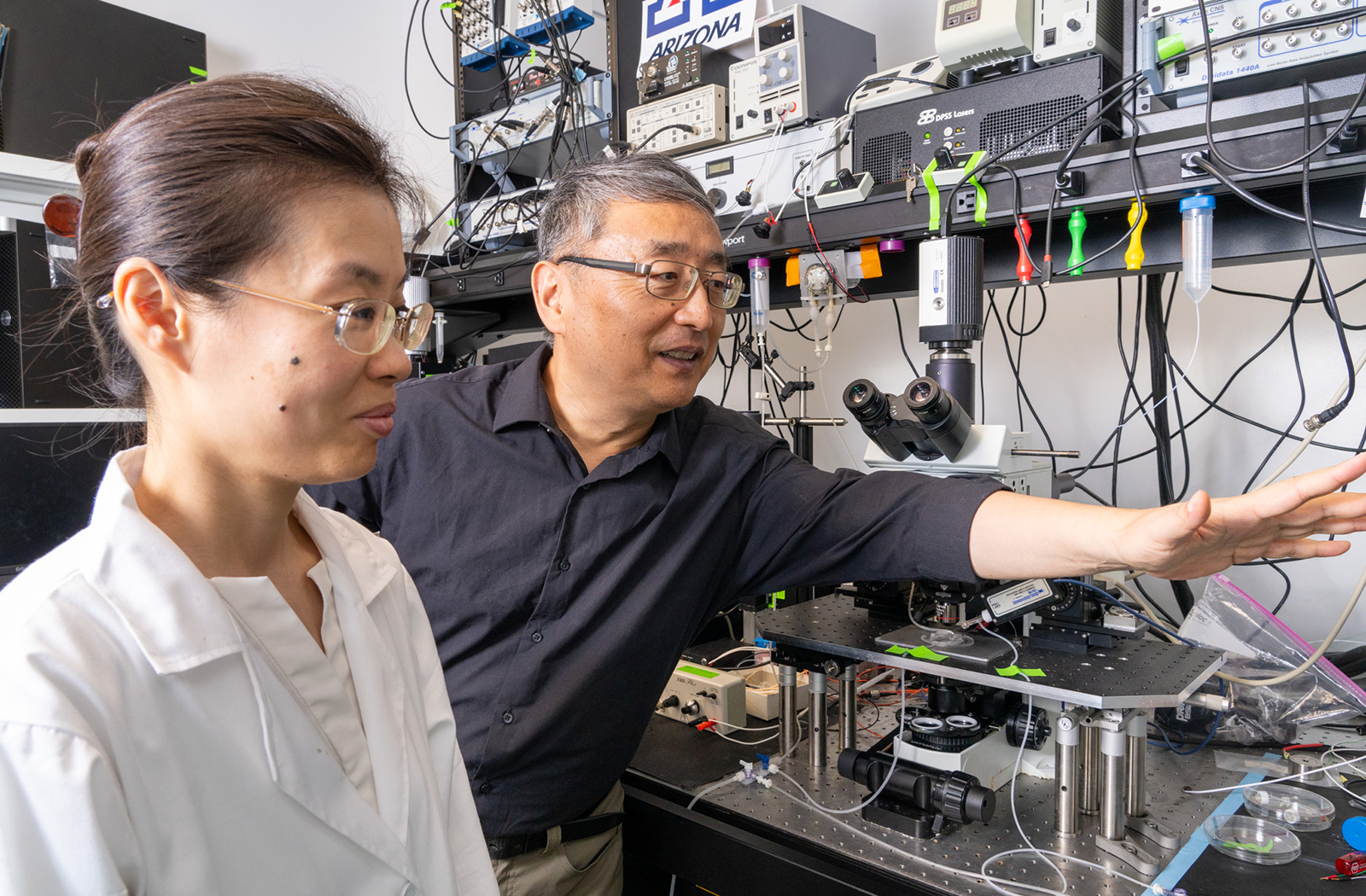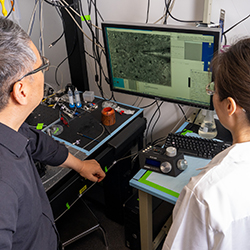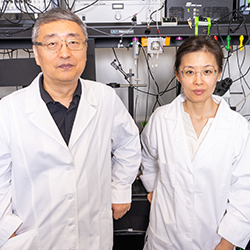
Dr. Shenfeng Qiu’s Research Links Intellectual Disability with Protein Mutation

A single gene point mutation in the brain can significantly impact brain development and intellect.

Shenfeng Qiu, MD, PhD, a professor in the University of Arizona College of Medicine – Phoenix’s Departments of Basic Medical Sciences and Translational Neurosciences, explored how a specific gene can drastically alter one’s cognitive ability.
Dr. Qiu, along with a team of researchers, studied how Protein arginine methyltransferase 9 (PRMT9) and a specific mutation (G189R) affects the brain’s function in a collaborative effort. His research team received a $128,000 subaward grant from the Beckman Research Institute of the City of Hope.
The principal investigator for this project was Yanzhong (Frankie) Yang, MD, PhD, an associate professor for the Beckman Research Institute of the City of Hope’s Department of Cancer Genetics and Epigenetics.
Dr. Qiu first met with Dr. Yang when the latter came to the Translational Genomics Research Institute’s (TGen) campus for a seminar talk while representing the City of Hope. The pair began discussing potential research projects, which led to them collaborating on a study related to brain development.
“It’s suggested that the gene has an important role in alternative splicing of genes and brain development, so that’s where we first connected,” Dr. Qiu said. “We talked about a possible collaboration because Dr. Yang is a molecular biologist, and my expertise is in neuroscience and developmental neurobiology.”
Over the past five years, Dr. Qiu and Dr. Yang generated preliminary data of PRMT9 through removing that gene from specific clinical models during development and then examining what happens when that gene is inactivated. The groups recently published a research paper on the role of PRMT9 in gene alternative splicing and brain development in Nature Communications.
By comparing the clinical model without the PRMT9 gene to the clinical model with normal PRMT9 gene dosage, Dr. Qiu and his fellow researchers were able to see a consistent trend of impaired learning and memory with the mutant model.

“The molecular, circuit and behavioral phenotypes exhibited from the conditional knockout model may explain why patients who have this mutation have cognitive deficits,” Dr. Qiu said. “When we knock out the PRMT9 gene and see changes in the trajectory of brain development, that might be a mechanistic connection to cognitive impairment.”
The goal for this study is to further understand more on alternatively spliced genes and molecular pathways. By targeting the pathways, there is hope in alleviating cognitive impairment for those genetic mutations leading to intellectual disability through targeted therapy or potentially restoring the neuron’s function.
“If you have this G189R mutation, then the function of the PRMT9 protein is reduced,” Dr. Qiu said. “In comparison, there are other mutations that greatly increase activity of the protein; but, either way, it’s detrimental have those mutations.”
With the grant award, Dr. Qiu and his fellow researchers will continue exploring the causative relationship between gene mutations and neurological development.
“All brain cells develop and function with each other and determine behavioral outcomes, this process is gene network-driven” Dr. Qiu said. “If you don’t understand the mechanism, there will be no way to design effective therapies for treatment.”
About the College
Founded in 2007, the University of Arizona College of Medicine – Phoenix inspires and trains exemplary physicians, scientists and leaders to advance its core missions in education, research, clinical care and service to communities across Arizona. The college’s strength lies in our collaborations and partnerships with clinical affiliates, community organizations and industry sponsors. With our primary affiliate, Banner Health, we are recognized as the premier academic medical center in Phoenix. As an anchor institution of the Phoenix Bioscience Core, the college is home to signature research programs in neurosciences, cardiopulmonary diseases, immunology, informatics and metabolism. These focus areas uniquely position us to drive biomedical research and bolster economic development in the region.
As an urban institution with strong roots in rural and tribal health, the college has graduated more than 1,000 physicians and matriculates 130 students each year. Greater than 60% of matriculating students are from Arizona and many continue training at our GME sponsored residency programs, ultimately pursuing local academic and community-based opportunities. While our traditional four-year program continues to thrive, we will launch our recently approved accelerated three-year medical student curriculum with exclusive focus on primary care. This program is designed to further enhance workforce retention needs across Arizona.
The college has embarked on our strategic plan for 2025 to 2030. Learn more.